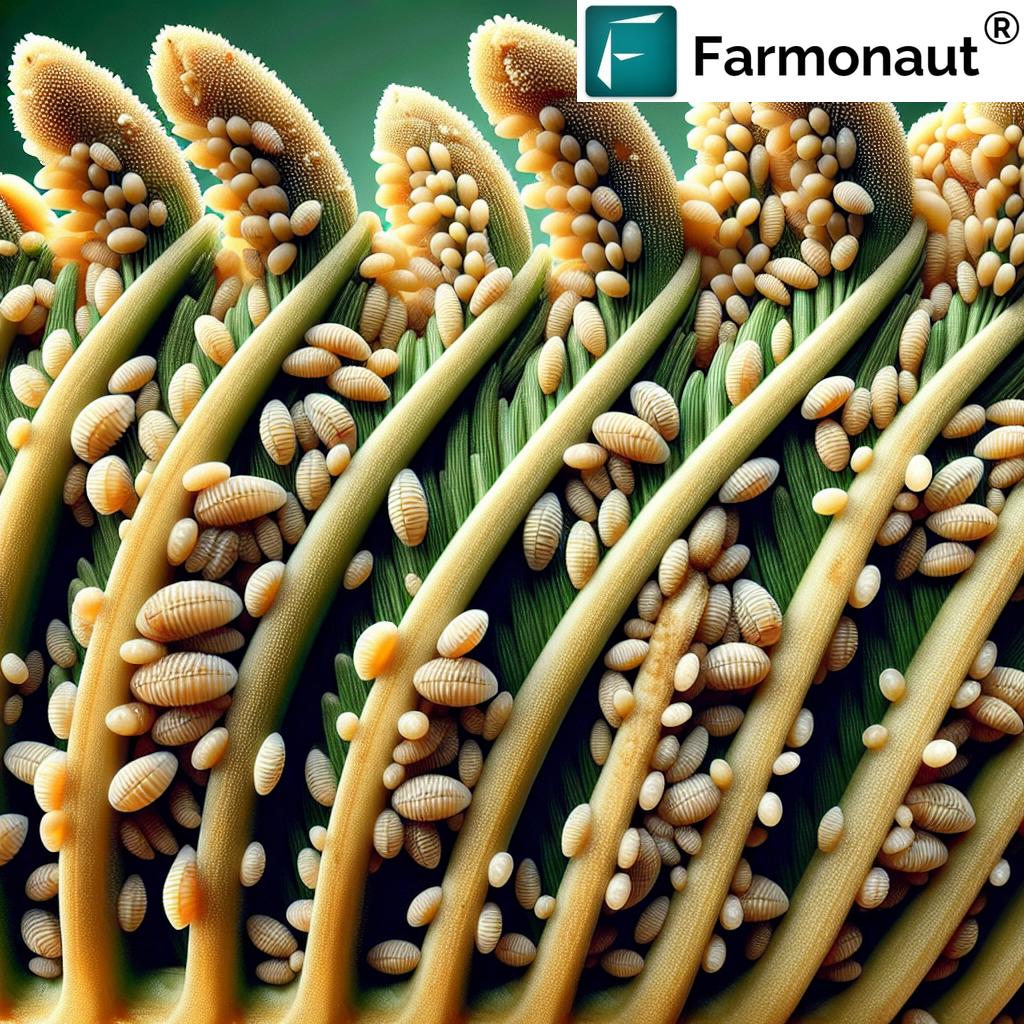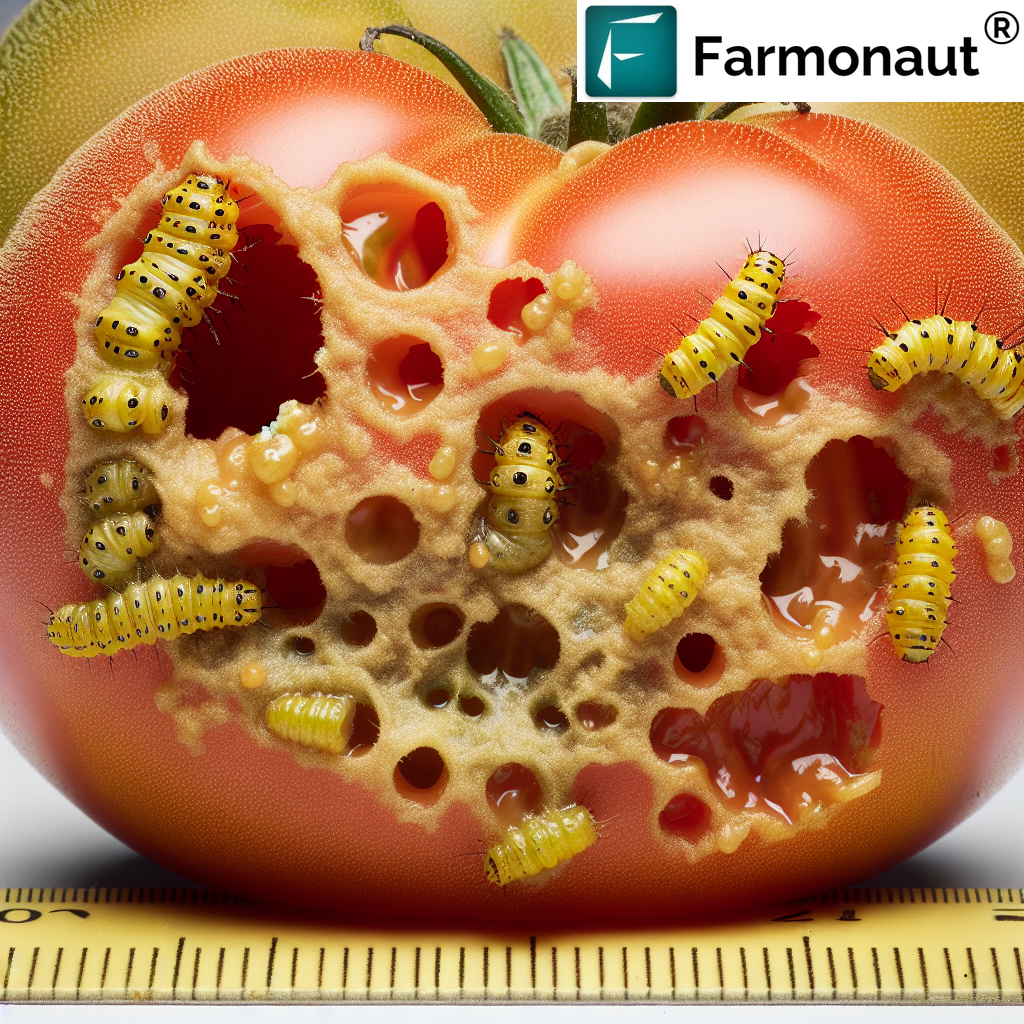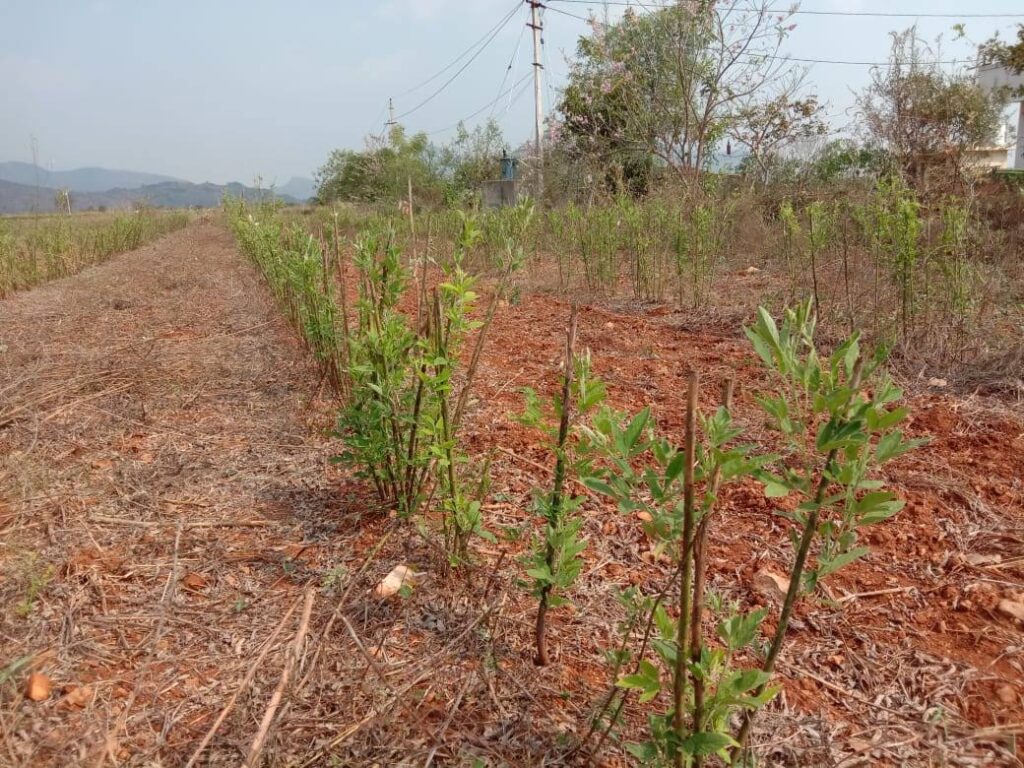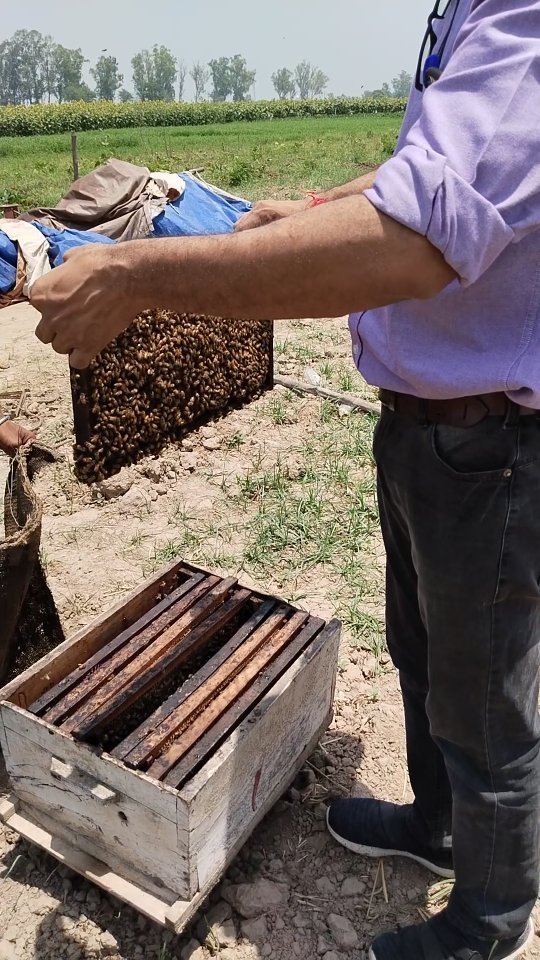Date Palm Scale Infestation: Effective Pest Control for Healthy Palms

At Farmonaut, we understand the critical importance of protecting date palms from harmful pests. Among the most notorious threats to these valuable agricultural assets is the date palm scale insect. In this comprehensive guide, we’ll delve into the world of date palm scale infestations, exploring effective pest control methods and leveraging cutting-edge technology to ensure the health and productivity of your palm plantations.
Understanding Date Palm Scale: A Tiny but Formidable Foe
Date palm scale insects are small but destructive pests that pose a significant threat to palm trees. These tiny insects belong to the Hemiptera order and are known for their ability to form dense colonies on various parts of the palm tree, including fronds, leaves, and fruits.
Characteristics of Date Palm Scale Insects
- Size: Adult scales are typically 1-3 millimeters in length.
- Shape: They have oval bodies with a flat or slightly convex profile.
- Protective Covering: Scales secrete a waxy layer that covers their bodies, providing protection from predators and environmental factors.
- Color: The color of scales can vary, but they are often grayish-white, brown, or reddish-brown.
- Gender Differences: Females are typically larger and remain stationary throughout their lives, while males are winged and mobile in their adult stage.
Life Cycle and Reproduction
Understanding the life cycle of date palm scale insects is crucial for implementing effective control measures:
- Egg Stage: Females lay eggs beneath their protective waxy covering.
- Crawler Stage: Upon hatching, tiny nymphs (crawlers) emerge and move to find suitable feeding sites.
- Nymph Stage: The crawlers settle and begin to secrete their waxy covering, becoming immobile.
- Adult Stage: Adults continue to feed and reproduce, with females remaining stationary and males developing wings.
The Impact of Scale Infestations on Date Palms
Date palm scale infestations can have severe consequences for palm health and productivity. These pests feed by inserting their needle-like mouthparts into plant tissues and sucking out sap, leading to various detrimental effects:
- Weakened plant vigor
- Yellowing and wilting of fronds and leaves
- Reduced fruit yield and quality
- Increased susceptibility to other pests and diseases
- In severe cases, tree death
Identifying Scale Infestations: Early Detection is Key
Recognizing the signs of a scale infestation early on is crucial for effective management. Here are some indicators to watch for:
- Presence of small, oval bumps on fronds, leaves, and fruits
- Sticky honeydew secretions on plant surfaces
- Black sooty mold growth on honeydew-covered areas
- Yellowing or browning of leaves
- Premature leaf drop
- Reduced growth and vigor of the palm
Traditional vs. Advanced Detection Methods
While traditional methods of pest detection rely on visual inspections and manual scouting, advanced technologies like satellite-based monitoring systems offer significant advantages in identifying and managing scale infestations. Let’s compare these approaches:
| Aspect | Traditional Pest Detection | Farmonaut Satellite System Detection |
|---|---|---|
| Detection Speed | Slow, labor-intensive process | Rapid, automated detection |
| Accuracy | Variable, dependent on human expertise | High accuracy with AI-powered analysis |
| Coverage Area | Limited to manual inspection capabilities | Large-scale monitoring of entire plantations |
| Cost-effectiveness | Time-consuming and potentially expensive for large areas | Highly cost-effective for monitoring vast plantations |
As demonstrated in the table above, Farmonaut’s satellite-based monitoring system offers significant advantages in terms of speed, accuracy, coverage, and cost-effectiveness compared to traditional pest detection methods.
Effective Pest Control Strategies for Date Palm Scale
Combating date palm scale infestations requires a multi-faceted approach. At Farmonaut, we recommend integrating various control methods for optimal results:
1. Cultural Control
- Proper irrigation and fertilization to maintain palm health
- Regular pruning to improve air circulation and reduce hiding spots for pests
- Removal and destruction of heavily infested plant parts
- Avoiding over-fertilization, which can promote scale populations
2. Biological Control
Encouraging natural predators can help keep scale populations in check:
- Ladybugs and their larvae
- Lacewings
- Parasitic wasps
- Predatory mites
3. Chemical Control
When infestations are severe, chemical interventions may be necessary:
- Horticultural oils (e.g., neem oil, mineral oil)
- Insecticidal soaps
- Systemic insecticides (for severe infestations)
Note: Always follow label instructions and local regulations when applying chemical controls.
4. Integrated Pest Management (IPM)
Combining multiple control strategies in an IPM approach often yields the best results:
- Regular monitoring and early detection
- Cultural practices to promote plant health
- Biological control to support natural predators
- Targeted chemical applications when necessary
Leveraging Technology for Enhanced Pest Management
At Farmonaut, we’re at the forefront of integrating advanced technology into agricultural pest management. Our satellite-based monitoring system offers unparalleled advantages in detecting and managing scale infestations:
- Early detection of stress patterns indicative of pest activity
- Large-scale monitoring of entire palm plantations
- AI-powered analysis for accurate identification of problem areas
- Real-time alerts and notifications for timely interventions
- Historical data analysis to track infestation patterns and effectiveness of control measures
To experience the power of our satellite-based pest monitoring system, visit Farmonaut’s web application or download our mobile app for Android or iOS.
Case Study: Successful Scale Control in a Large Date Palm Plantation
To illustrate the effectiveness of integrating advanced technology with traditional pest control methods, let’s examine a hypothetical case study of a large date palm plantation facing a severe scale infestation:
Background
- Location: Middle East
- Plantation size: 1,000 hectares
- Problem: Widespread date palm scale infestation affecting 30% of the plantation
Approach
- Implemented Farmonaut’s satellite monitoring system for continuous surveillance
- Conducted targeted ground inspections based on satellite data
- Developed an IPM strategy combining cultural, biological, and chemical controls
- Used Farmonaut’s API to integrate pest data with the plantation’s management system
Results
- Early detection of new infestation hotspots
- 50% reduction in chemical pesticide use
- 30% increase in natural predator populations
- Overall infestation reduced to less than 5% of the plantation within one growing season
- 15% increase in fruit yield due to improved palm health
This case study demonstrates the power of combining advanced technology with traditional pest management techniques for optimal results.
Best Practices for Long-Term Scale Control
To ensure the ongoing health of your date palm plantation and minimize the risk of future scale infestations, consider implementing these best practices:
- Regular Monitoring: Utilize Farmonaut’s satellite monitoring system for continuous surveillance of your plantation. Regular checks allow for early detection and swift intervention.
- Maintain Plant Health: Healthy palms are more resistant to pest infestations. Ensure proper irrigation, fertilization, and pruning practices.
- Promote Biodiversity: Encourage natural predators by maintaining diverse plantings and minimizing broad-spectrum pesticide use.
- Quarantine New Plants: Inspect and quarantine new palms before introducing them to your plantation to prevent the introduction of scale insects.
- Staff Training: Educate your team on scale identification, monitoring techniques, and proper control methods.
- Record Keeping: Maintain detailed records of infestations, treatments, and outcomes to inform future management decisions.
- Rotate Control Methods: To prevent pesticide resistance, rotate between different control methods and chemical classes when treatments are necessary.
- Weather Monitoring: Use Farmonaut’s weather API to track conditions that may favor scale insect development and plan interventions accordingly.
The Role of Remote Sensing in Scale Pest Management
Remote sensing technology, particularly satellite imagery analysis, has revolutionized the way we approach pest management in large-scale agricultural operations. At Farmonaut, we leverage this technology to provide unparalleled insights into palm health and pest activity:
Benefits of Satellite-Based Monitoring for Scale Control
- Large-Scale Coverage: Monitor vast areas of palm plantations efficiently and cost-effectively.
- Early Detection: Identify stress patterns indicative of scale infestations before they become visible to the naked eye.
- Temporal Analysis: Track changes over time to understand infestation patterns and the effectiveness of control measures.
- Precision Management: Target interventions to specific areas, reducing unnecessary pesticide applications.
- Resource Optimization: Allocate labor and resources more efficiently based on accurate, real-time data.
- Integration with Other Data: Combine satellite imagery with weather data, soil information, and historical records for comprehensive pest management strategies.
How Farmonaut’s Technology Works
- Data Acquisition: Regular capture of high-resolution multispectral satellite imagery of palm plantations.
- Image Processing: Advanced algorithms analyze the imagery to detect anomalies in vegetation health.
- AI Analysis: Machine learning models interpret the processed data to identify patterns consistent with scale infestations.
- Alert Generation: The system generates alerts and maps highlighting areas of concern.
- Integration: Data is seamlessly integrated into the Farmonaut platform and can be accessed via our web application, mobile apps, or API.
By harnessing the power of satellite technology and AI, we enable palm growers to stay one step ahead of scale infestations, ensuring the health and productivity of their plantations.
Economic Impact of Effective Scale Management
Implementing a comprehensive scale management program, supported by advanced technologies like Farmonaut’s satellite monitoring system, can have significant economic benefits for date palm growers:
- Increased Yield: Healthy palms produce more fruit of higher quality, directly impacting revenue.
- Reduced Input Costs: Targeted interventions minimize unnecessary pesticide applications, lowering chemical and labor costs.
- Extended Palm Lifespan: Effective pest control helps palms live longer, maximizing the return on investment for each tree.
- Improved Product Quality: Pest-free dates command higher prices in the market.
- Enhanced Sustainability: Reduced pesticide use and improved plantation health contribute to long-term sustainability and potential certification premiums.
Future Trends in Date Palm Scale Management
As technology continues to advance, we at Farmonaut are excited about the future of pest management in date palm cultivation. Some emerging trends and technologies to watch include:
- Hyperspectral Imaging: More detailed spectral analysis for even earlier pest detection.
- Drone Integration: Combining satellite data with drone-captured imagery for higher resolution monitoring.
- IoT Sensors: In-field sensors providing real-time data on microclimate conditions favorable to scale development.
- Advanced Biocontrols: Development of more effective and targeted biological control agents.
- Predictive Modeling: AI-powered systems that can forecast potential infestations based on historical data and current conditions.
Conclusion: Empowering Palm Growers with Technology
Date palm scale infestations pose a significant threat to palm plantations worldwide. However, with the right knowledge, tools, and technologies, growers can effectively manage this pest and ensure the health and productivity of their palms. At Farmonaut, we’re committed to empowering growers with cutting-edge solutions that make precision agriculture accessible and affordable.
By combining traditional pest management practices with advanced satellite monitoring and AI-powered analysis, we’re helping to usher in a new era of sustainable and efficient palm cultivation. Together, we can protect these valuable agricultural assets and secure a thriving future for date palm growers around the world.
To learn more about how Farmonaut can help you manage scale infestations and optimize your palm plantation, visit our website or contact our team of experts today.
FAQs
-
Q: How often should I monitor my date palms for scale infestations?
A: Regular monitoring is crucial. With traditional methods, weekly visual inspections are recommended. However, using Farmonaut’s satellite monitoring system allows for continuous surveillance, with alerts generated as soon as potential issues are detected. -
Q: Are there any natural predators that can help control scale populations?
A: Yes, several natural predators can help control scale insects, including ladybugs, lacewings, and parasitic wasps. Encouraging these beneficial insects in your plantation can contribute to natural pest control. -
Q: How does Farmonaut’s satellite monitoring detect scale infestations?
A: Our system analyzes multispectral satellite imagery to detect changes in vegetation health that are indicative of pest stress. AI algorithms then interpret these patterns to identify potential scale infestations. -
Q: Can scale insects develop resistance to chemical controls?
A: Yes, scale insects can develop resistance to pesticides over time. This is why we recommend an integrated pest management approach that combines multiple control methods and rotates between different chemical classes when treatments are necessary. -
Q: How can I integrate Farmonaut’s technology with my existing farm management system?
A: Farmonaut offers an API that allows for seamless integration with various farm management systems. You can find more information in our API documentation.
Subscribe to Farmonaut
Ready to take your date palm management to the next level? Subscribe to Farmonaut’s advanced satellite monitoring system and gain access to cutting-edge pest detection and management tools.













